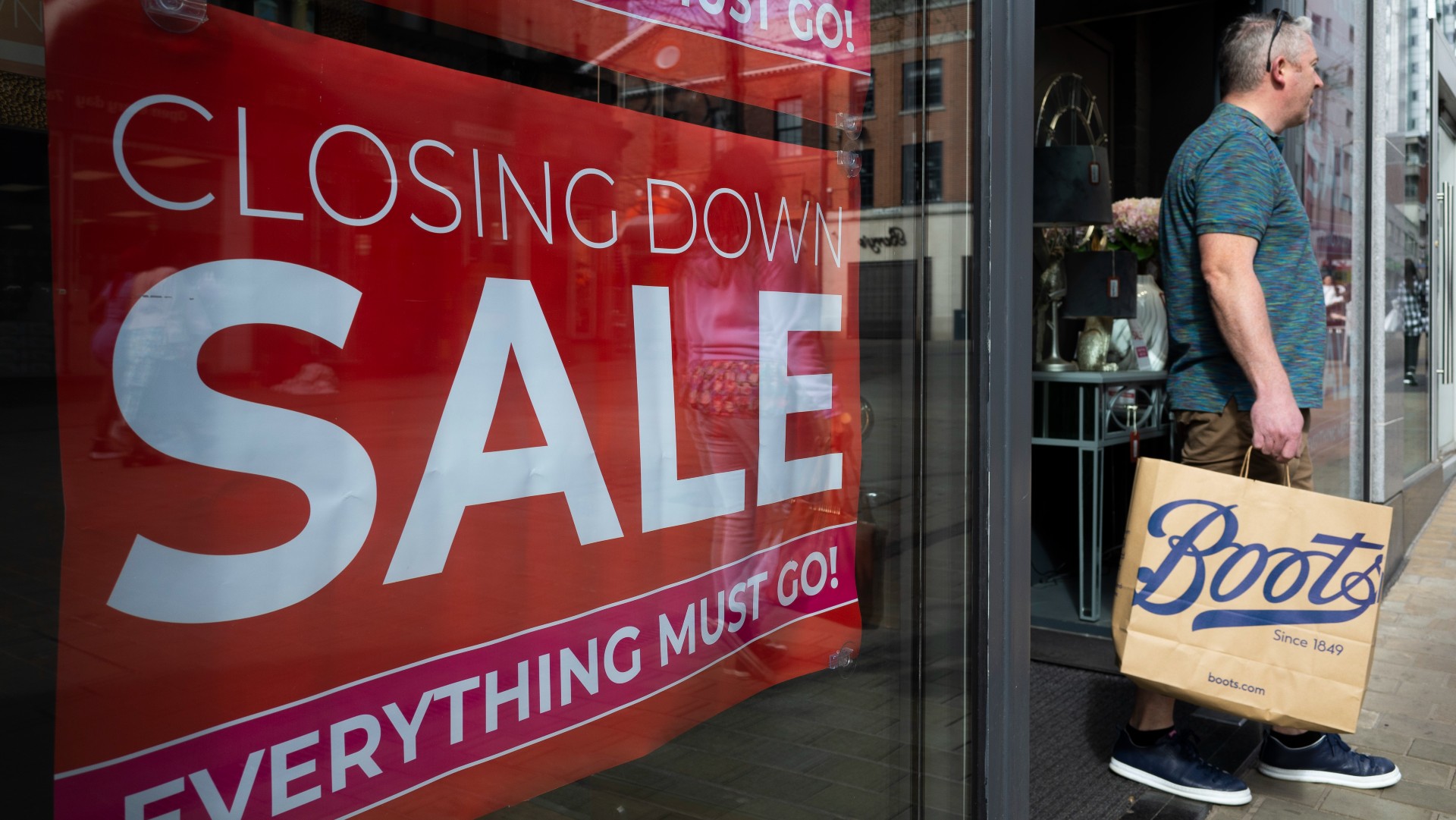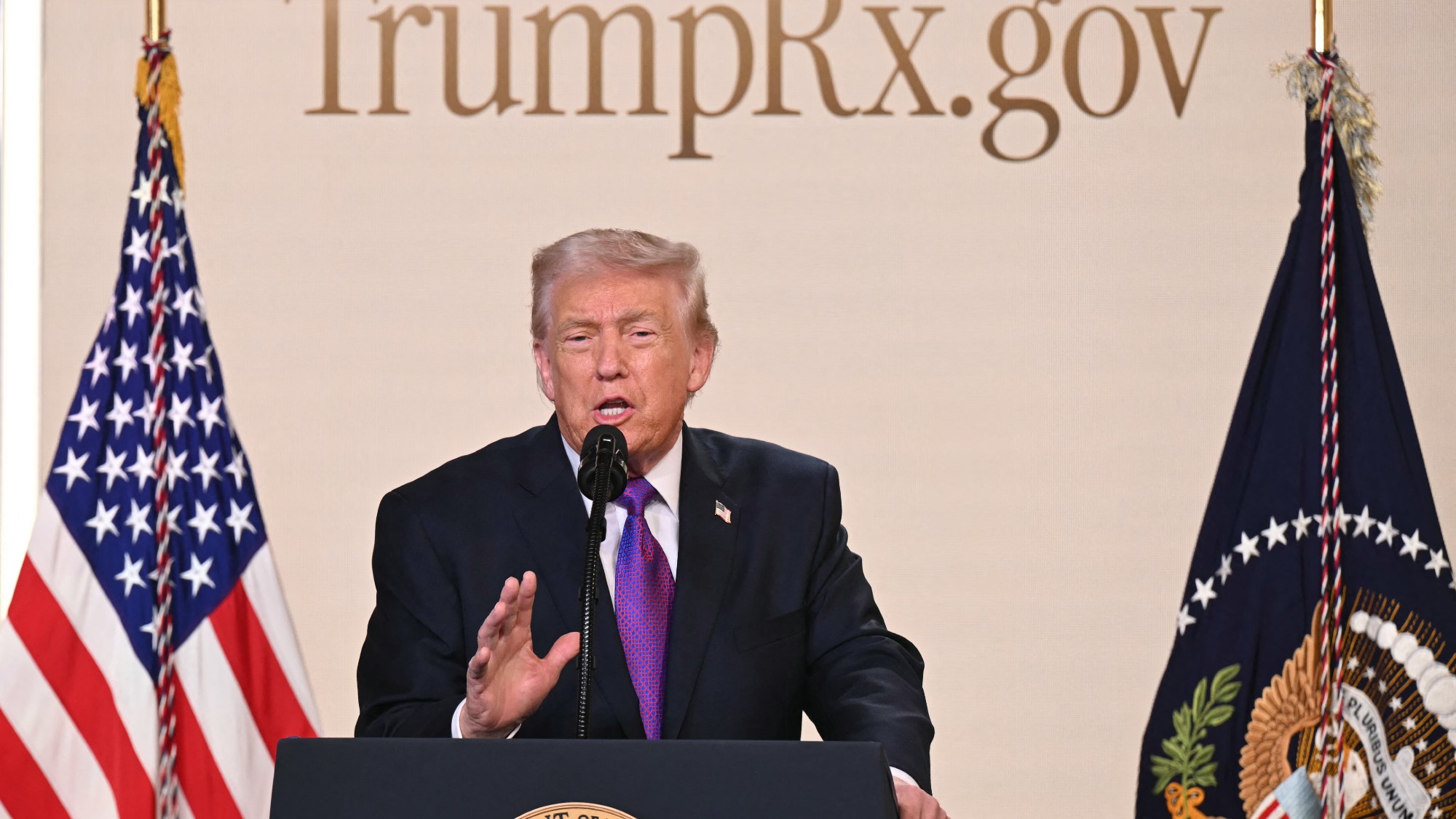Will UK firms survive the winter?
New government support package will cap wholesale energy costs for UK businesses for six months

A free daily email with the biggest news stories of the day – and the best features from TheWeek.com
You are now subscribed
Your newsletter sign-up was successful
Energy bills of UK businesses will be cut by half after the government announced a huge support package designed to help firms survive the winter.
Under the new plans, the government will fix wholesale gas and electricity prices for businesses for six months from 1 October, shielding them from the worst of the “crippling” energy costs, said the BBC.
Companies, charities and public sector organisations such as schools and hospitals who are on existing fixed priced contracts agreed on or after 1 April 2022 will all benefit from the scheme. Prime Minister Liz Truss has indicated that further help may be offered to companies in vulnerable industries after the six months is up.
The Week
Escape your echo chamber. Get the facts behind the news, plus analysis from multiple perspectives.

Sign up for The Week's Free Newsletters
From our morning news briefing to a weekly Good News Newsletter, get the best of The Week delivered directly to your inbox.
From our morning news briefing to a weekly Good News Newsletter, get the best of The Week delivered directly to your inbox.
Wholesale prices are expected to be fixed for all non-domestic energy customers at £211 per MWh for electricity and £75 per MWh for gas. Cornwall Insight, a leading industry analyst, predicts this would provide businesses with a “substantial” 45% discount on wholesale energy prices.
As she announced the new plans, Truss said her government understood the “huge pressure businesses, charities and public sector organisations are facing with their energy bills”.
She added: “As we are doing for consumers, our new scheme will keep their energy bills down from October, providing certainty and peace of mind.
“At the same time, we are boosting Britain’s homegrown energy supply so we fix the root cause of the issues we are facing and ensure greater energy security for us all.”
A free daily email with the biggest news stories of the day – and the best features from TheWeek.com
The support package comes after the government announced the same for households earlier this month. Costs for that package, according to some analysts “could be as high as £150 billion” reported Politico, while “Cornwall Insight estimated the likely cost at around £25 billion” for this new support for business.
What did the papers say?
The UK finds itself “battling the worst cost of living crisis in a generation and the government is scrambling to try and contain inflation” caused largely by Russia cutting gas supplies to Europe in the wake of its invasion of Ukraine, said the Financial Times (FT).
The government now argues that by “containing energy-price driven inflation” this will both support businesses and help lower borrowing costs, a “key focus” for the government after its borrowing rose to twice the level the independent fiscal watchdog, the Office for Budget Responsibility, had expected for August.
But the “big problem” for this new support for businesses “is its shelf life”, said the BBC’s business editor Simon Jack. Most companies plan further than six months in advance, and there will be some “whose plans to cut production, close premises and let staff go will not change as a result of this intervention”.
“Had nothing been done costs might have doubled versus current levels with costs for businesses spiralling out of control,” Tom Gilbey, equity research analyst at Quilter Cheviot, told the FT.
“[But] even with the scheme in place, prices will likely still cause significant issues for businesses over the winter especially those that are less well capitalised. In fact some companies have already flagged this isn’t enough to see them through the winter,” he added.
But for others, particularly for retail and hospitality operations, they may see the new plans as “giving them a fighting chance over the commercially crucial Christmas trading period”, said the BBC's Jack.
Nevertheless, although the government may have “thrown an emergency blanket over the economy this winter”, in the longer term, “more fundamental reform” to the energy supply market is needed.
What next?
Chancellor Kwasi Kwarteng is due to announce an emergency “mini-budget” on Friday, which is “expected to set out some detail” over how the government will pay for the energy scheme while at the same time delivering on its promises to cut taxes. As Reuters notes, however, the total cost of the energy scheme will ultimately “depend on market prices over the coming months”.
According to the news agency, investors believe that Friday’s mini-budget will be a “critical test of confidence in British public finances” at a time when both borrowing costs and public spending are rising.
-
 Democrats seek calm and counterprogramming ahead of SOTU
Democrats seek calm and counterprogramming ahead of SOTUIN THE SPOTLIGHT How does the party out of power plan to mark the president’s first State of the Union speech of his second term? It’s still figuring that out.
-
 Climate change is creating more dangerous avalanches
Climate change is creating more dangerous avalanchesThe Explainer Several major ones have recently occurred
-
 What’s TrumpRx and who is it for?
What’s TrumpRx and who is it for?The Explainer The new drug-pricing site is designed to help uninsured Americans
-
 Companies are increasingly AI washing
Companies are increasingly AI washingThe explainer Imaginary technology is taking jobs
-
 Is the US in a hiring recession?
Is the US in a hiring recession?Today's Big Question The economy is growing. Job openings are not.
-
 Will Trump’s 10% credit card rate limit actually help consumers?
Will Trump’s 10% credit card rate limit actually help consumers?Today's Big Question Banks say they would pull back on credit
-
 Why is pizza in decline?
Why is pizza in decline?In the Spotlight The humble pie is getting humbler
-
 How prediction markets have spread to politics
How prediction markets have spread to politicsThe explainer Everything’s a gamble
-
 What will the US economy look like in 2026?
What will the US economy look like in 2026?Today’s Big Question Wall Street is bullish, but uncertain
-
 SiriusXM hopes a new Howard Stern deal can turn its fortunes around
SiriusXM hopes a new Howard Stern deal can turn its fortunes aroundThe Explainer The company has been steadily losing subscribers
-
 How will China’s $1 trillion trade surplus change the world economy?
How will China’s $1 trillion trade surplus change the world economy?Today’s Big Question Europe may impose its own tariffs